Program Officer (PO) Introduction
Program Officer (PO)
Responsible for the research area, including the selection of research topics, coordination and approval of research plans, and research management such as the evaluation of research topics.
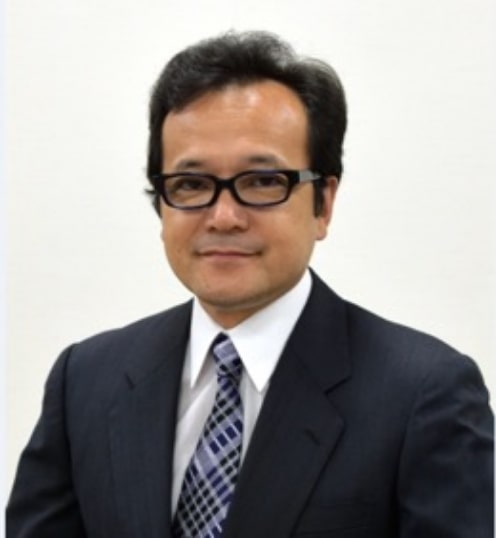
Specially Appointed Professor, D3 Center, The University of Osaka YAGI Yasushi
- 1985:
- Worked at the Applied Equipment Research Laboratory and the Industrial Systems Research Laboratory of Mitsubishi Electric Corporation. Faculty of Engineering Science, The University of Osaka
- 2003:
- Professor at the Institute of Scientific and Industrial Research, The University of Osaka
- 2012 to 2015:
- Promoted to Director
- 2015 to 2019:
- Director and Vice President of The University of Osaka (in charge of research, industry-academia collaboration, risk management and library)
- 2017:
- Program Officer of AMED's Research Project for Establishment of ICT Infrastructure and Implementation of Artificial Intelligence in Clinical Research
- 2019:
- Program Officer of JST's Emergent Research Support Project
- 2024:
- Program Officer of JST's K-Program
- 2025:
- Specially Appointed Professor, D3 Center, The University of Osaka
- 2014: received the Science and Technology Award from the Minister of Education, Culture, Sports, Science and Technology in the field of science and technology for the "Research on Gait Video Analysis and its Forensic Use" in the research category.
PO's comment on the research area
Although GAFAM's market capitalization has surpassed the combined market capitalization of all the companies listed on the first section of the Tokyo Stock Exchange, it is no easy task for Japan to increase its presence in the AI and Information field. The deployment of generative AI such as ChatGPT and Stable Diffusion is driving research at breakneck speed. The value of data is dramatically increasing not only in generative AI, but also in machine learning in general, and data strategies at the national level are becoming increasingly important.
In order to be the leader in this research field, it is necessary to establish a global network to position ourselves as the de facto standard worldwide and adopt a comprehensive research strategy. In other words, to be a trailblazer in the field of AI and Information, we need to strengthen international networks by not only developing innovative algorithms but also by constructing and globally disseminating databases, platforms, and other resources that researchers worldwide will find valuable and want to incorporate into their work.
Aspirations for the project researchers
The purpose of ASPIRE is to maintain and improve Japan's scientific and technological capabilities and to achieve this international talent mobility and circulation through international joint research, international network building, and the development of human resources capable of becoming world leaders are necessary.
As mentioned above, in the field of AI and information, databases and platforms are the means to attract researchers from around the world, and we expect TOP researchers to make full use of these means to create international networks that will lead the field and contribute to the maintenance and improvement of our scientific and technological capabilities.

Professor, School of Advanced Science and Engineering, Waseda University TAKEYAMA Haruko
- 1992:
- Ph.D. degree from the Department of Biotechnology, Graduate School of Engineering, Tokyo University of Agriculture and Technology.
Researcher at the University of Miami Marine Laboratory and Assistant Professor, Associate Professor, and Professor at Tokyo University of Agriculture and Technology. - 2007:
- Professor at the Department of Biomedical Sciences, School of Advanced Science and Engineering, Waseda University.
- 2009:
- Director of the Institute for Integrative Research in Normative Science, Waseda University, Nano Life Innovation Research Organization.
- 2016:
- Concurrently served as Laboratory Director at the National Institute of Advanced Industrial Science-Waseda University Computational Bio Big Data Open Innovation Laboratory
- 2019 to 2022:
- Senior Researcher at the Agricultural and Environmental Sciences Group of the JSPS Research Center for Science Systems.
- 2020:
- Project Manager of Moonshot Goal 5, Cabinet Office, Japan.
- 2021:
- Received the Society Award from The Japanese Society of Marine Biotechnology.
- 2021:
- Received the Meritorious Achievement Award from the Society for Biotechnology, Japan.
- 2023:
- Received the Ministry of Education, Culture, Sports, Science and Technology (MEXT) Science and Technology (Research Category) Award from MEXT
PO's comment on the research area
Biotechnology is a very broad field. In recent times, advancements in AI and Information technologies have made it possible to gain new insights into the field through big data analysis. Biotechnology research is undergoing major changes, as seen in the development of Engineering Biology, which makes full use of various biological information and molecular biological techniques. To achieve a sustainable and circular bioeconomy society in this swiftly evolving domain, it is crucial to approach biotechnology development in a transdisciplinary manner.
In addition, the promotion and acceleration of research under international collaboration is required, and it is essential to secure and foster excellent human resources to promote such research.
We are accepting proposals not only from top-level international researchers and research teams, but also from promising next-generation researchers even if their laboratories may still be small in scale. We hope to see proposals that provide a unique nurturing environment that advance biotechnology research.
Aspirations for the project researchers
The purpose of this program is to foster young researchers and graduate students in an international environment to encourage them make advancements in science and technology. I strongly hope that our next generation of young researchers can improve the academic environment of Japan by gaining experience under a network of top-class researchers, and acquiring an international perspective in an inclusive research environment. In order to realize this vision, we expect the principal investigators to establish top-class research networks, and be responsible for fostering the next generation with tangible outcomes.
In addition, I hope that we can to build our success by circulating talent in both directions and not limit ourselves to a one way dispatch of our talent to counterpart research institutions. I look forward to seeing new ideas for fostering the next generation of top researchers that challenging conventional approaches to human resource development.
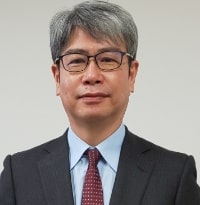
Professor, Graduate School of Information Science and Technology, The University of Osaka SHIMIZU Hiroshi
- 1989:
- Doctoral course completed without Ph.D., Department of Chemical Engineering, Graduate School of Engineering, Kyoto University
- 1990:
- Ph.D. degree in Engineering, Kyoto University
- 1990:
- Assistant Professor, Faculty of Engineering, The University of Osaka
- 1995:
- Associate Professor, Graduate School of Engineering, The University of Osaka
- 1996 to 1997:
- Visiting researcher, Department of Chemical Engineering, Massachusetts Institute of Technology (MIT), USA
- 2003
- Professor, Graduate School of Information Science and Technology, The University of Osaka
- 1997:
- Encouragement Award of Biochemical Engineering Field in Society for Biotechnology, Japan
- 2002:
- Fermentation and Metabolism Incentive Award, Japan Bioindustry Association
- 2018:
- Achievement Award of the Society for Biotechnology, Japan
Conducted research in metabolic engineering, biotechnology, biochemical engineering and bioinformatics
PO's comment on the research area
Innovations in molecular biology and other technologies have significantly expanded the potential for the application of biological functions. Engineering biology is expected to grow significantly with the integration of information technologies such as design-based cell modification, cell analysis and data science. By engineering cells and living systems, foundations with new perspectives will emerge in various fields, such as manufacturing for a sustainable society, harmony between humans and artificial materials, re-design of functions biosystems with the aid of deciphering living organisms and understanding the relationships between the environment and life.
By forming an international network in the engineering biology field, we hope to accelerate the creation of technologies that contribute to a sustainable society by understanding the workings of life and imparting desirable traits to cells.
Aspirations for the project researchers
ASPIRE will have two joint calls in the field of engineering biology, one with the UK and another with the US, in 2024. We hope that through these joint calls, the top researchers from the engineering biology community will join these international networks and conduct collaborative cutting edge research to accelerate international talent mobility and circulation. In particular, by promoting joint research within an international network with early career researchers playing a central role, we hope to provide hands-on training for them, and sustainably form networks.
Engineering Biology is a field that holds great promise for addressing global challenges. With ASPIRE, we hope to nurture early career researchers who will lead the next generation, while also laying the groundwork for sustainable development within the international networks of the field.
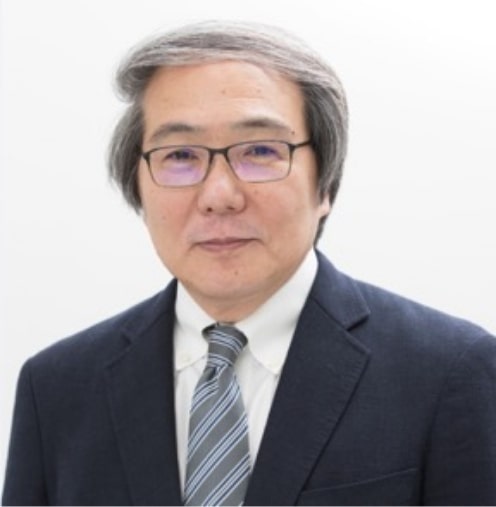
Institute Professor, Institute of Integrated Research, and Director of Research Center for All-Solid-State Battery, Institute of Science Tokyo KANNO Ryoji
- 1989:
- Associate Professor, Faculty of Science, Kobe University
- 2001:
- Professor, Interdisciplinary Graduate School of Science and Engineering, Tokyo Institute of Technology (Institute of Science Tokyo)
- 2021:
- Institute Professor, Institute of Innovative Research (IIR),Tokyo Institute of Technology (Institute of Science Tokyo), and Director of All-Solid-State Battery Center within IIR.
- 2024:
- Institute Professor, Institute of Integrated Research, and Director of Research Center for All-Solid-State Battery, Institute of Science Tokyo
- Conducted research in France, the U.S., and the U.K., as a French Government Scholarship student, a visiting professor at the University of Paris 11, and MEXT (Ministry of Education, Culture, Sports, Science and Technology) overseas research fellow.
- Specializes in solid-state chemistry, electrochemistry, batteries, and energy conversion materials. In particular, he has been searching for solid electrolytes with properties comparable to those of liquid electrolytes and promoting research on all-solid-state batteries.
- Received the Ichimura Science Prize, the Takei Prize of the Electrochemical Society of Japan, and the Ministry of Education, Culture, Sports, Science and Technology (MEXT) Science and Technology Award.
PO's comment on the research area
I am in charge of the energy field. This is a field with high expectations due to the social demand for carbon neutrality. Although it is easy to see the path from basic research to technological development for practical use and industrialization, it is also a highly competitive field. I believe that researchers conducting basic research in this field constantly grapple with the challenge of determining when to compete and when to collaborate while they work on their projects. I feel that even top researchers who think impactful research can be done domestically would acknowledge that their experiences and skills gained at other research institutions in Japan and abroad influence their current research.
The individuality of an individual's research can only flourish when they can experience firsthand the differences in the national characteristics of research being conducted in various countries, and this can become an distinctive feature of a research group. I hope that the program will encourage researchers to establish a hub for collaborative interactions and knowledge exchange.
Aspirations for the project researchers
Excellent research practices can be done within Japan. This is due to the efforts of our predecessors, and I believe the current research environment in Japan is second to none in the world. However, I also believe that it is only when individual researchers come into direct contact with active top researchers from various institutions and countries that gives rise to truly unique research. By understanding the background and experiences of top researchers, researchers of Japan will be able to find their own individuality which in turn makes Japan's research unique.
In this program, I hope that researchers will take full advantage of the opportunity to learn about the many events that surround the development of research, rather than just advancing your research (which is, of course, the obvious thing to do).
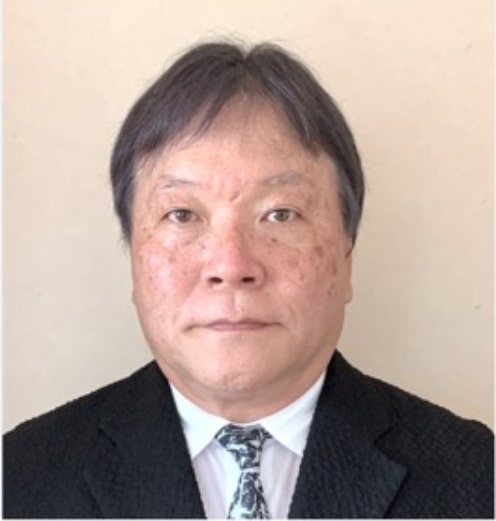
Deputy Center Director, Center for Emergent Matter Science, RIKEN AIDA Takuzo
- 1984:
- received a Ph.D. from the University of Tokyo Graduate School of Engineering. Assistant, Lecturer, and Assistant Professor at the University of Tokyo Faculty of Engineering.
- 1996:
- promoted to Professor. JST PRESTO Researcher, JST ERATO / ERATO-SORST Research Director, and Director of RIKEN Frontier Research System
- 2013:
- Deputy Director of the Center for Emergent Material Science at RIKEN, leading research on soft materials.
- 2022:
- Distinguished University Professor at the University of Tokyo.
- Received many national and international awards, including the American Chemical Society Award and the Japan Academy Prize.
- The member of the American Academy of Arts and Sciences, United States National Academy of Engineering, the Netherlands Academy of Arts and Sciences, and a Kao Executive Fellow.
PO's comment on the research area
I am in charge of the Material Chemistry and Material Science Division. In order to push Japan's strengths in materials chemistry and materials science to a higher level, we will focus on developing innovative substances and materials that have original and outstanding properties, functions, and have "solely unique remarkable characteristics".
Aspirations for the project researchers
We are focusing on proposals that outline strategies for world class research and creating non-linear progression of research through international collaborations. In addition, we hope proposal includes plans to encourage highly motivated doctoral students and staff to stay with international counterparts for an extended period to strengthen talent mobility and circulation, and to foster early career researchers that will be global trailblazers.
We welcome idea orientated proposals that look to build new academic principles, rather than proposals that follow an "1 + 2 = 3" end application approach.
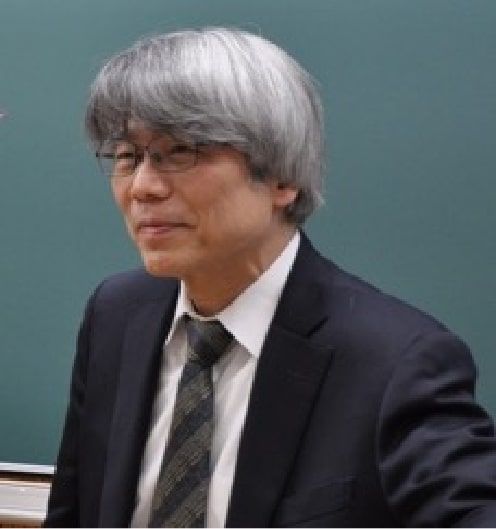
Deputy Program Director, Fundamental Quantum Science Program, Transformative Research Innovation Platform(TRIP) of RIKEN platforms, RIKEN KAWAKAMI Norio
- 1986:
- withdrew from the doctoral program of the Graduate School of Engineering, The University of Osaka. Assistant at the Department of Applied Physics at The University of Osaka, the Associate Professor at the Research Institute for Fundamental Physics, Kyoto University,
the Professor at the Graduate School of Engineering, The University of Osaka, and the Professor at the Graduate School of Science, Kyoto University. - 2023:
- Professor Emeritus, Kyoto University / Professor Emeritus, The University of Osaka.
- 2024:
- Currently Deputy Program Director, Fundamental Quantum Science Program at RIKEN
- Currently Deputy Program Director, Fundamental Quantum Science Program at RIKEN/the Visiting Professor at Ritsumeikan University.
- Specializes in condensed matter physics for quantum materials, mainly theoretical studies of quantum many-body phenomena.
- 2015-2019: 2015-2019: the Grant-in-Aid for Scientific Research of New Academic Area's "Topological Material Science" Area Representative.
- Recipient of Nishina Memorial Prize, IBM Japan Science Award
PO's comment on the research area
In recent years, the importance of quantum-related research has rapidly increased. The quantum field covers a wide range of areas, including quantum information technology that enables ultra-high-speed and massively parallel processing, the development of quantum measurement technology that surpasses existing precision, and the development of quantum materials with innovative functions. Global competition in this field has been intensifying over the years.
Although my main specialty is quantum materials, the research on quantum open systems that I have been involved in recently is deeply related to the fundamentals of quantum information and quantum measurement. In order to cover the entire quantum field well, I would like to support this program by having experts who have their own strengths participate as advisors so that we can maximize the advantages of this program.
Aspirations for the project researchers
In order to strengthen our international competitiveness by accelerating cutting-edge research and to foster talented researchers who will lead the next generation, it is important to interact with outstanding researchers and promote international joint research. Research on quantum information, quantum measurement, and quantum materials is a very important field for the realization of a productivity revolution and for ensuring the safety and security of the people. I especially believe that the success of young researchers who will lead the next generation holds the key to the future of this field.
Since ASPIRE aims to accelerate talent mobility and circulation by connecting top researchers in Japan and our counterpart countries through international joint research, I hope that this program will be fully utilized to foster world leading researchers.
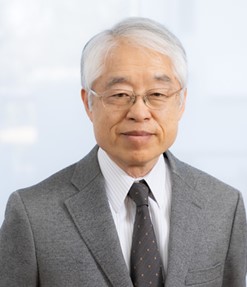
Research Group Director, RIKEN Center for Emergent Matter Science (CEMS), RIKEN TARUCHA Seigo
- 1978:
- After completing Master's degree in engineering at The University of Tokyo, joined the Nippon Telegraph and Telephone Public Corporation Telecommunications Research Institute (NTT Basic Research laboratories).
- 1986:
- Doctor of Engineerig, Ph. D. from The University of Tokyo.
- 1998:
- Professor, Graduate School of Science, The University of Tokyo
- 2005:
- Professor, Graduate School of Engineering, The University of Tokyo
- 2019:
- Professor Emeritus, The University of Tokyo/ Research Group Leader, RIKEN Center for Emergent Matter Science
- 2020:
- Research team leader, RIKEN Quantum Computing Research Centre
- 2022:
- Project manager of Moonshot Goal 6, Cabinet Office
- Awards Medal with Purple Ribbon, Nishina Prize, Esaki Prize, Fujiwara Prize, and more.
PO's comment on the research area
The development of quantum technologies, such as quantum communications, quantum computing, quantum metrology and sensing, and quantum materials, is underway in many countries and is expected to provide innovative solutions to social issues, including those related to information and energy. Both Japan and the UK are engaged in R&D efforts spanning a wide range of these technological areas and have historically experienced similar developments. Recently, both countries have developed and implemented national quantum strategies that encompass basic research, applied research, and even industrialisation. ASPIRE aims to establish a quantum technology academic field and community by building on the international talent circulation efforts between the two countries, engaging in complementary research that leverages each country's strengths. These efforts are expected to pave the way for broader international collaborations in the long term. Although the practical application of quantum technology still presents many challenges, we believe it will undoubtedly evolve into a major technological field in the future.
Aspirations for the project researchers
Although the academic field of quantum theory is vast, there seems to be a lack of research focused on the practical applications and utilisation of quantum technology. However, the number of researchers specialising in quantum technology has noticeably increased, partly due to active government support in recent years. While ASPIRE promotes internationalisation through researcher exchanges, I believe that the incentives for young researchers, including PhD students, to conduct research abroad remain limited. I look forward to seeing more ambitious joint research proposals that actively involve young researchers and aim to foster deeper research exchanges that go beyond surface-level engagement. By experiencing the global impact of quantum technology firsthand through participation in a top-tier international community and robust exchanges, I believe we will witness the remarkable growth of young researchers.
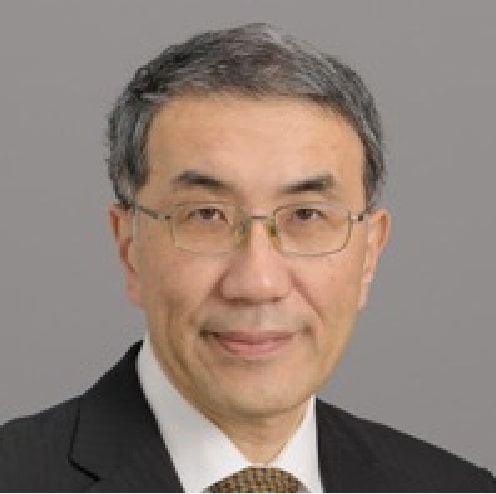
The University of Tokyo/School of Engineering System Design Lab/Project Researcher AMANO Hideharu
- 1986:
- Ph.D. in Engineering from the Faculty of Science and Technology at Keio University.
- 1985:
- Worked at the Faculty of Science and Technology at Keio University and at Stanford University for one year in 1989.
- 2001:
- Professor at Keio University.
- 2024:
- The University of Tokyo/School of Engineering System Design Lab/Project Researcher
- Developed numerous computer-related chips and systems through his research on parallel computer architecture and reconfigurable systems.
- Received the Best Paper Award from Information Processing Society of Japan, the Best Paper Award from Institute of Electronics, Information and Communication Engineers, and others.
PO's comment on the research area
Japan is currently investing funds to strengthen semiconductor fabrication. However, without developing new hardware (such as semiconductor chips, architecture, design technology, low power consumption technology, analogue and digital circuit technology) and systems including software that supports the hardware, these efforts in fabrication will not be able to lead to commercialization.
Furthermore, there is an urgent need to promote the allure of semiconductor chip design and system development to attract and foster young researchers in this field. Hopefully we can take advantage of recent developments as a tailwind to widely revitalize semiconductor-related technologies.
Aspirations for the project researchers
The lack of popularity of semiconductor chip design among young people is our fault, as we purposely worked under highly stressful environments. We loved the exhilaration we felt when the chip worked after putting in tireless, all-night efforts before tape-outs, all while facing the looming risk of potential losses amounting to tens of millions of yens. I deeply regret this now.
If you go to Silicon Valley and collaborate with engineers and researchers from various backgrounds to develop systems together, you will see that semiconductor chip designers are treated wonderfully there and that they creatively spend their time while developing chips. I know these researchers and engineers feel the same exact exhilaration we felt when the chip worked but without all the stress.
GAFA will be increasingly involved in the developing their own chips, and ASPIRE can provide opportunities for researchers in Japan to co-develop with them.
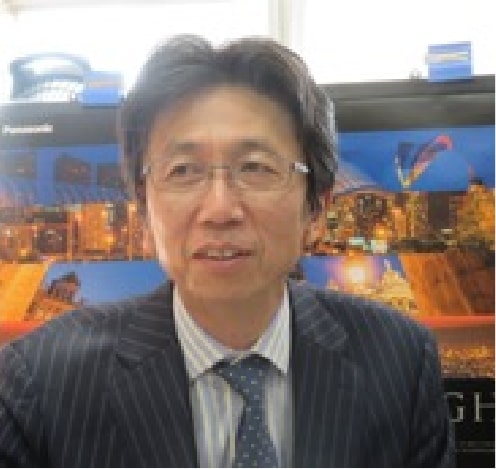
Specially Appointed Professor, Keio University Shin-Kawasaki Town Campus YAMANAKA Naoaki
- 1983:
- completed a master's degree at Keio University. Joined Nippon Telegraph and Telephone Corporation (now NTT) in the same year.
- 2000:
- became the youngest Japanese Fellow of the Institute of Electrical and Electronics Engineers of America (IEEE),
- 2004:
- became a professor at Keio University, Faculty of Science and Engineering.
- 2018 to 2022:
- served as the Director of the Keio Research Centre for Advanced Science and Technology, received a Ph.D. in Engineering.
- 2024:
- Specially Appointed Professor, Keio University Shin-Kawasaki Town Campus
- 1990, 1994, 1998 IEEE ECTC Best Paper Award. 1995 IEEE Trans. on CPMT Best Paper Award. Awarded the IEICE (Institute of Electronics, Information and Communication Engineers) Achievement Award in 2015 and 2017.
- Vice-President of the IEICE and an Affiliate Member of the Science Council of Japan. Currently, the President-Elect of IEICE, President of Photonic Internet Lab., Fellow of IEEE, Fellow of IEICE, Senior Member of Information Processing Society of Japan, Member of Institute of Electrical Engineers of Japan
PO's comment on the research area
The communications sector - from the internet, wireless communications, optical networks to the cloud, IoT and the digital twin - is not only evolving rapidly but is also an active field with extremely short timescales from fundamental research to business. They also require strong collaboration, vertically from devices to systems, networks and services, and horizontally from academia to enterprises and business.
Telecommunications is an area for the Cabinet Office's growth strategy for Japan and has an extremely large impact on society and the economy. It is said that the GDP of information and communications has grown by 50% in the past five years. We cannot keep creating technology that is intended to be used only in Japan, as standardization and consortia are essential components of this field than just publishing papers. To achieve global solutions, it is imperative that we actively pursue international collaborations and conduct research as a global team.
Aspirations for the project researchers
Here is what I said at the JST press conference when I became Program Officer (PO). My teacher, Yukichi Fukuzawa, translated the English word "Society" into Japanese as "Human Interaction". This is because he believed that society was not only about economics (money) or infrastructure such as railways and roads, but how we connect and think with other people in order to live harmoniously. Furthermore, he held the belief that the expansion of social relationships laid the groundwork for the development of knowledge, virtue, and civilization.
In other words, this project is a challenge to acquire global 'collective intelligence'. Those of you who study communications are well aware that 'global expansion' is our measurement of success. This isn't just an opportunity to go abroad, but an opportunity to make new networks and join top teams made by the pioneers of the field. Or better yet, I hope you'll be the maker and leaders of the new team of trailblazers.








